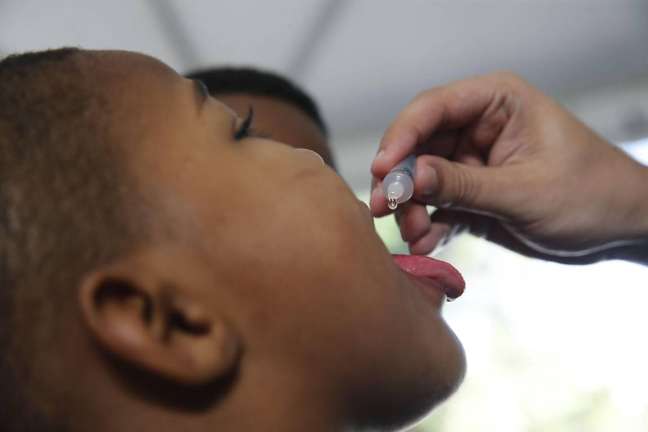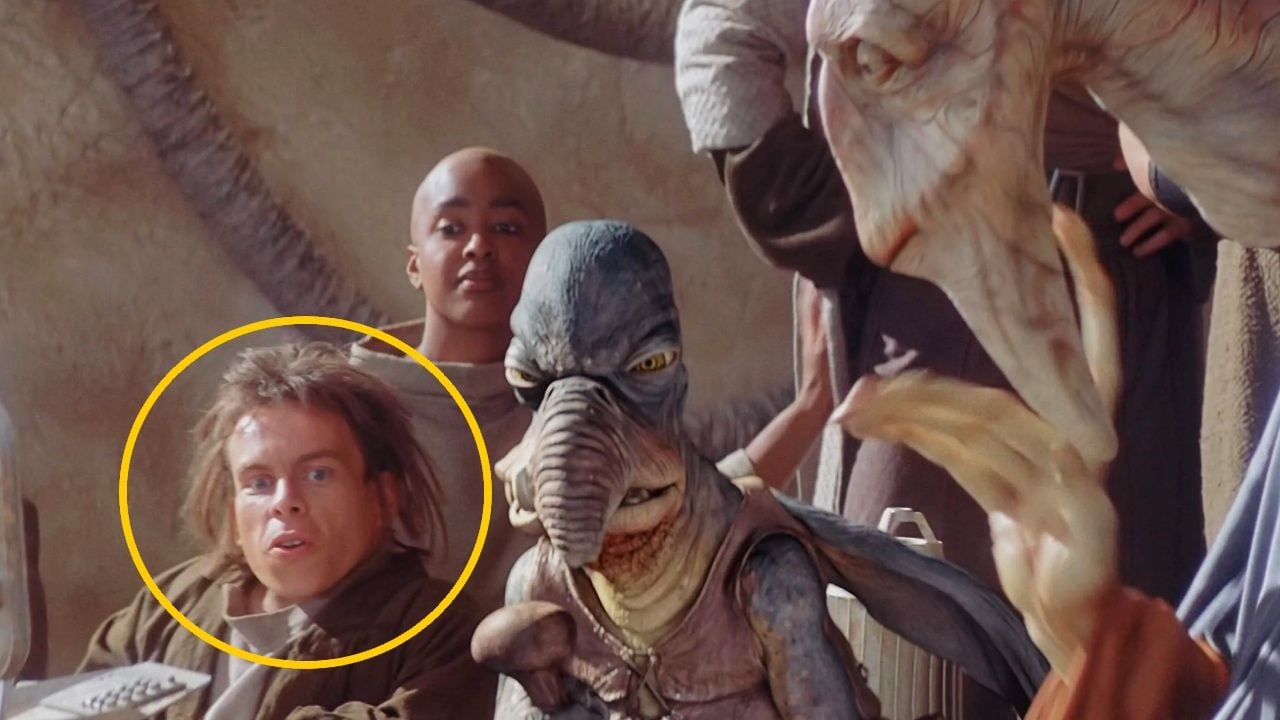Municipalities are mobilizing to expand vaccination coverage in the country, which is 70%, below ideal; 3.4 million children under 5 have not yet received the vaccine
SOROCABA – The search for unvaccinated people through the WhatsApp application, the distribution of circus tickets and even bicycle lotteries are among the strategies of the municipalities of different states of Brazil to expand vaccination coverage against polio. Until this Tuesday, the 25th, the rate was 70%, when the ideal is to vaccinate 95% of children under 5 years old. 3.4 million people in this age group across the country remain to be immunized, according to Ministry of Health.

The effort in the search for the unvaccinated is justified. In 2020, the Pan American Health Organization (PAHO) classified Brazil as a place at risk of reintroduction of the disease – also known as infantile paralysis -, which had been eradicated in the early 1990s. the country on maximum alert.
According to the Ministry of Health, 8.1 million children have been vaccinated up to yesterday, out of a total of 11.5 million who are the target audience – under 5 years old. The immunizer, the file informs, remains available at health centers throughout the country, even with the end of the national campaign in September. Some cities keep mobilizing.
The most vaccinated states so far have been Amapá (95.88% of the target audience), Pernambuco (86.15%) and Alagoas (83.53%). Those with lower coverage are Acre (38.65%), Roraima (41.15%) and Rio de Janeiro (45.24%).
In the capital Rio de Janeiro, application of doses more than doubled after the city hall launched an active search for unvaccinated children, including using WhatsApp groups of health workers. According to the Secretary of Health, Daniel Soranz, the daily average has increased from 750 to 1,600 applied doses. “We still have 130,000 unprotected children. In addition to the regular schedule doses, we are applying another booster dose to children between the ages of 1 and 4. We ask parents to bring these children to the clinic,” he said.
While Rio state had vaccinated less than half of its target audience as of Tuesday, the capital had vaccinated 55.20 percent of children, according to city hall. 174 thousand doses have been applied, but the goal is to reach 300 thousand children (95% of the reference target). In addition to using social media, teams from family clinics and municipal health centers are making their way to residents’ homes. Primary care units are also open on Saturdays, from 8:00 to 12:00.
In the capital of São Paulo, the campaign has been extended indefinitely, the municipal health department informed on Tuesday 25. In addition to the polio vaccine, for children between the ages of 1 and 4 years and 11 months, doses against other diseases that are part of the multi-vaccination campaign for children and adolescents between the ages of 0 and 15 will be applied. Since the start of the campaign, on 8 August, 1.4 million doses have been applied, 352 thousand against polio and 1.1 million for another 15 immunizers.
In the case of polio, coverage is 79.2%, below the 95% target. “The extension is another opportunity for those who have not yet received the polio booster dose. We will also continue efforts to update the cards with other vaccinations on the national calendar,” said the coordinator of health surveillance in the capital, Luiz. Arthur Caldeira.
In the state of São Paulo, with coverage of 64.70%, municipalities have stepped up actions to attract the unvaccinated. The State Department of Health reported that, regardless of campaigns, the polio vaccine is permanently available at the stations, according to the national vaccination schedule defined by the ministry.
lotteries
In Araçatuba, inside São Paulo, a wheeled car was used to actively search for unvaccinated people in more distant neighborhoods. In addition, the city hall has partnered with a circus to distribute tickets to children under five who have been vaccinated. In the city 7,752 children were vaccinated, a rate of 88%.
At Presidente Prudente (SP), children taken for the vaccine have won coupons to participate in bike sweepstakes. “We are all concerned, because we have more than 10,000 children in the target audience and there are still many to be vaccinated,” said the supervisor of epidemiological surveillance, Elaine Bertacco.
The bicycle lottery was also used in Paranavaí, in the interior of Paraná, in Aparecida do Taboado (MS) and in Diamantino (MT). “The Dose Premiata campaign is a way to encourage parents to seek the health unit, where they are alerted to the risks of polio and other diseases that can be avoided by vaccination,” said the Secretary of Health of the city of Mato Grosso. . , Marineze Meira.
In Goiânia, 5-year-old Hellena Rebeka Santos Barbosa won a “reward” after taking the drops on 8 October. The city hall of the capital of Goiás, in collaboration with the Social Service of Industry, distributed tickets for the park managed by Sesi on the occasion of Children’s Day. “She enjoyed the sunny day in the pool and was able to participate in games and games, as well as receive food. It was the first time she went to a club and she loved it,” says Hellena’s mother, Kenya Rodrigues Barbosa.
To try to attract families, some cities have adopted alternative schedules. In Chapecó, in Corujão da Vaccination, the doses are applied between 18:00 and 21:30. According to the Secretary of Health, Jader Danielli, the goal is to assist parents who work and cannot bring their children to vaccinate during the day. In Santa Catarina, which has 82.26% vaccination coverage, a state law requires the submission of a full vaccination certificate for enrolling children in public and private schools.
“We offer (vaccine) on weekends and at night and the action was well publicized, so there is no justification for the lack of demand, ”said Acre immunization program coordinator Renata Quiles.
The task force monitors wastewater
In Campinas (SP), where just over half of the target audience received the doses, community health workers in the municipality are going to homes to find out why the children did not go to get vaccinated, in the action Adopt a card. Homeless families are also approached. In the city, the coverage considered ideal, 95%, was last reached in 2018.
According to the director of the Department of Health Surveillance (Devisa), Andrea von Zuben, there is concern about the reintroduction of the polio virus because Campinas has a flow of people from different regions of the world, through Viracopos International Airport. Furthermore, the metropolitan region of Campinas is considered a commercial, industrial, university and research center.
These factors, combined with the decline in coverage in recent years, increase the risk of reintroduction of infantile paralysis, he said. In 2015, the rate was 101.7%, dropping to 82.8% in 2021. “Every year the number of children without vaccines increases. Our numbers, which were no longer doing well, got much worse during the pandemic.” , he has declared. The municipality has stepped up surveillance at the airport, including the search for unvaccinated refugees, strengthening the suspicious notification scheme and even environmental monitoring of wastewater to identify the possible presence of the virus.
Infantile paralysis is a contagious disease caused by a virus that lives in the gut, the poliovirus, which can infect children and adults through direct contact with the feces or mouth secretions of infected people. In severe cases, muscle paralysis occurs in which the lower limbs are most affected. The last case in Brazil was registered in 1989. In 1994 the eradication of the disease in the Americas was certified.
According to researcher Akira Homma, of Oswaldo Cruz Foundation (Fiocruz)), the drastic drop in vaccinations, especially in the last two years, leaves the country with little protection against a possible return of the disease. “For nearly 30 years, Brazil has not had a single case of polio. In the 1980s, with the participation of the whole society, we achieved high vaccination coverage. In two national vaccination days, in which we vaccinated 18 millions of children in just one day we have eliminated this terrible virus from the country and this drop in coverage has left a huge number of children unprotected, “he said.
What does the Ministry of Health say?
The Ministry of Health reported that Brazil is one of the world references in immunization and has one of the largest vaccination programs in the world, applying an average of 100 million doses per year. “Updating the vaccine situation increases protection against vaccine-preventable diseases, preventing outbreaks and hospitalizations, sequelae, rehabilitation treatments and deaths,” he said in a statement.
According to the file, Brazil has already eliminated five diseases with immunization – infantile paralysis, congenital rubella syndrome, rubella, maternal and neonatal tetanus and smallpox – but the occurrence of poor coverage can cause these diseases to be reintroduced into the country. , returning to a public health issue. ANDRÉIA BAHIA COLLABORATE, SPECIAL FOR ESTADÃO
+The best content in your email for free. Choose your favorite Earth Newsletter. Click here!
Source: Terra
Benjamin Smith is a fashion journalist and author at Gossipify, known for his coverage of the latest fashion trends and industry insights. He writes about clothing, shoes, accessories, and runway shows, providing in-depth analysis and unique perspectives. He’s respected for his ability to spot emerging designers and trends, and for providing practical fashion advice to readers.







